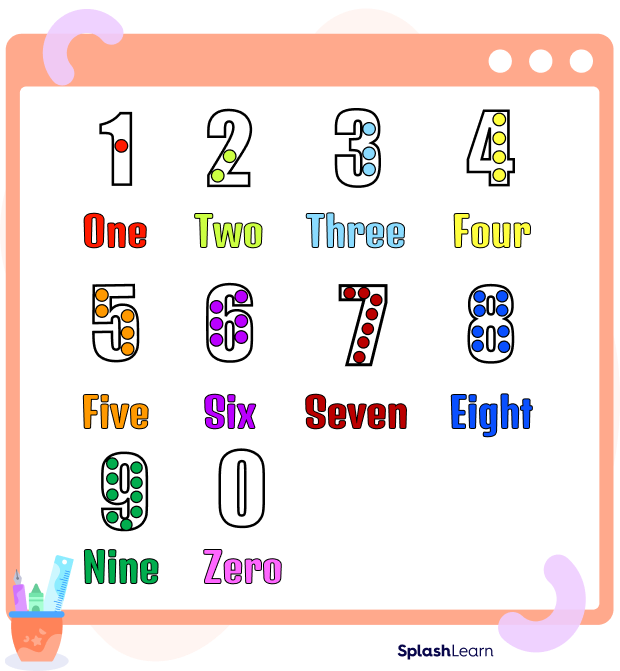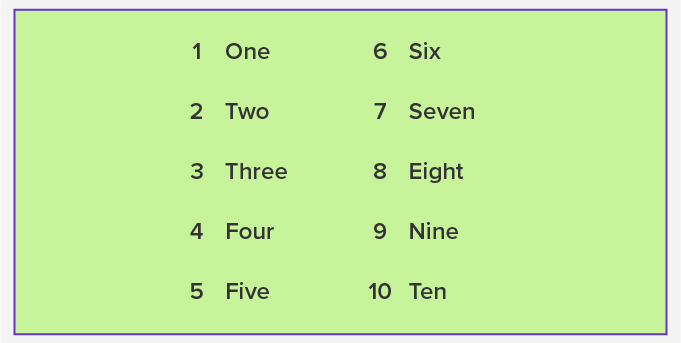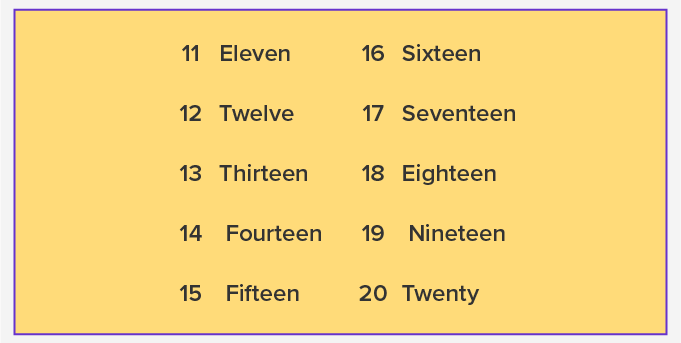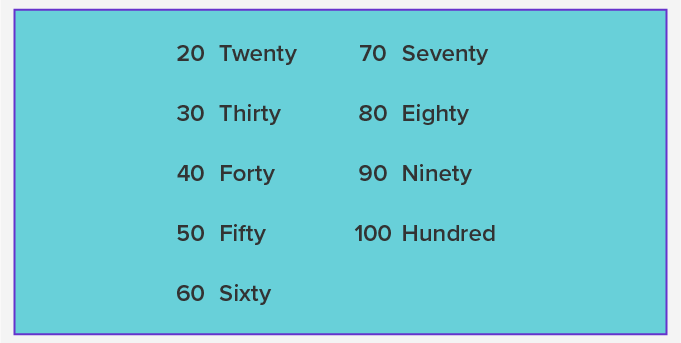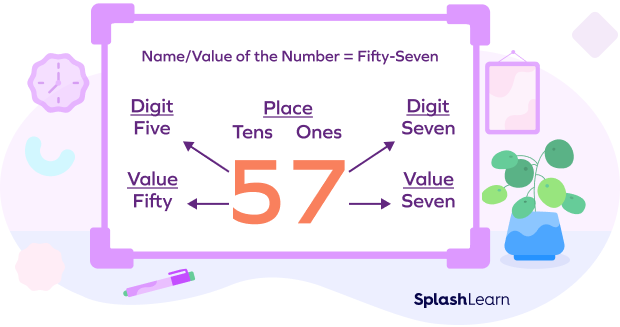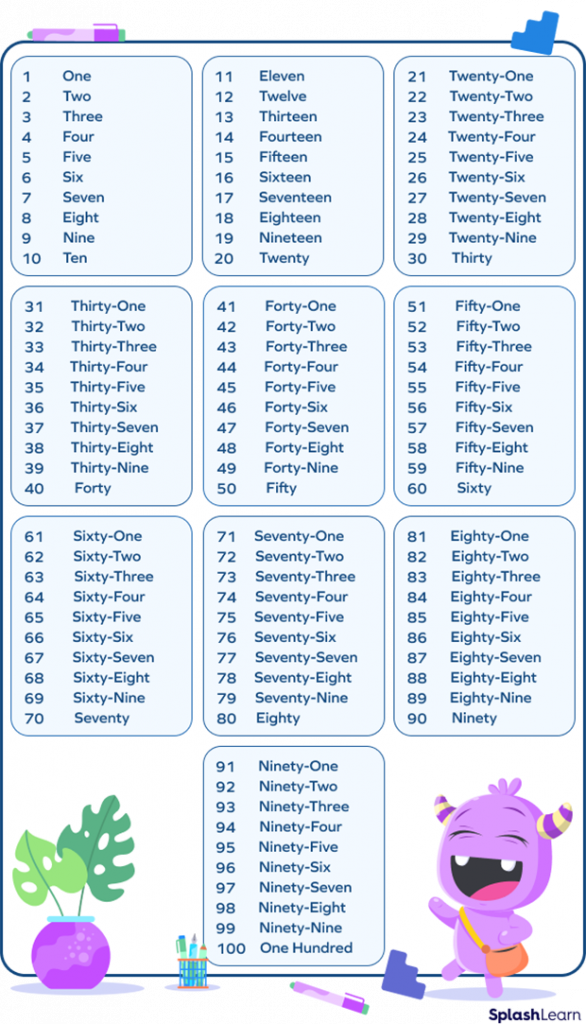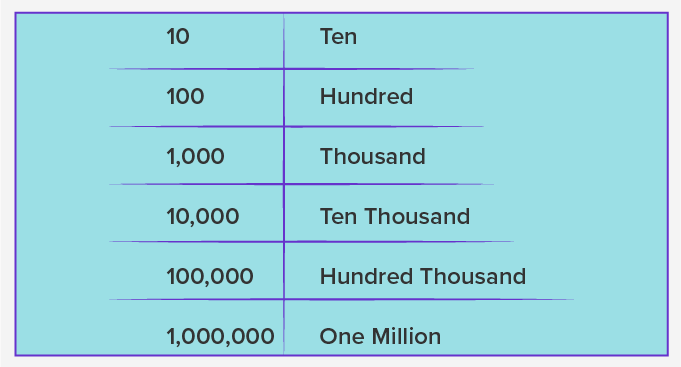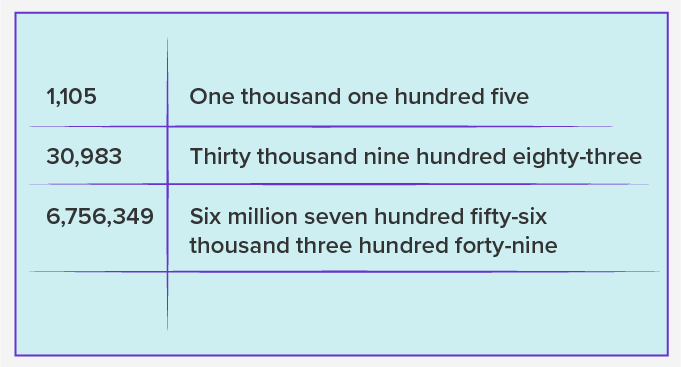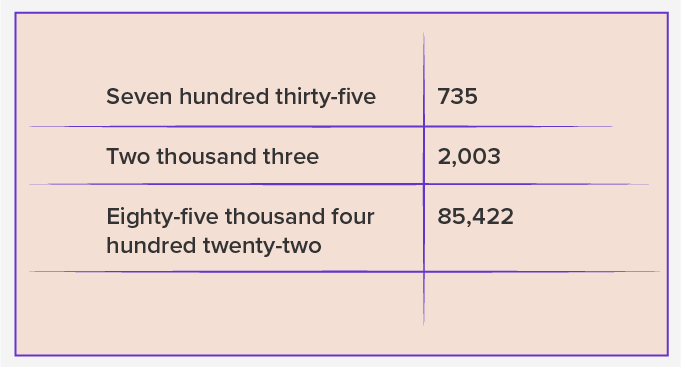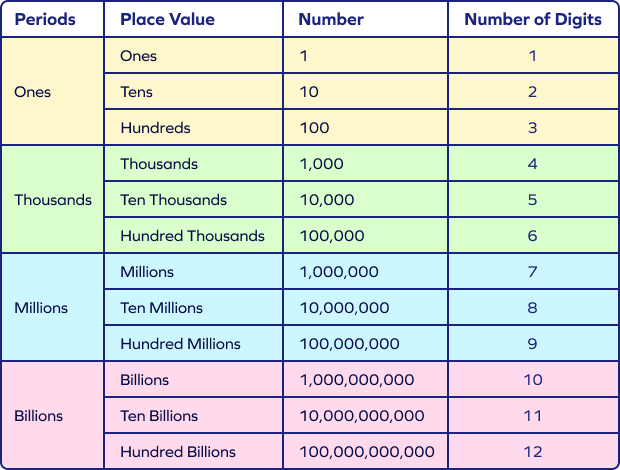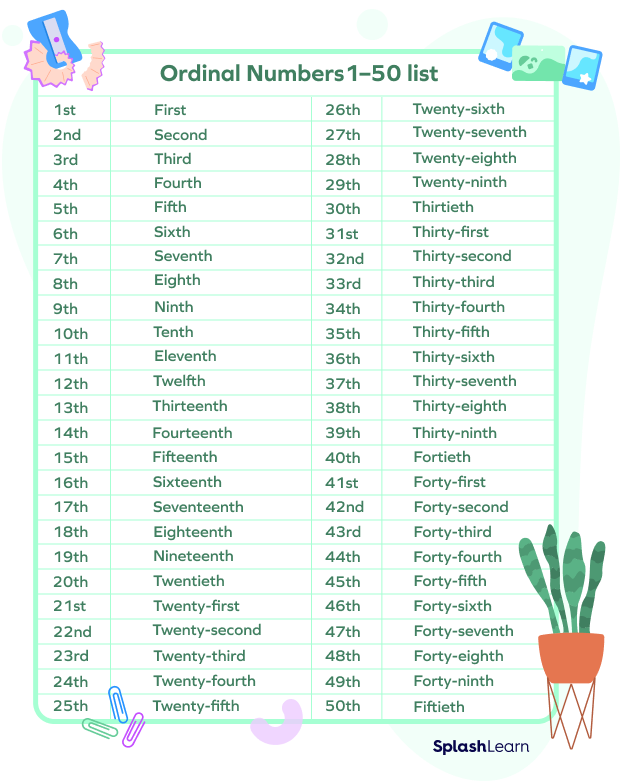In the present-day linguistics, a various number of word-formation ways is distinguished even within the individual languages, which are designated by different terms. And commonly, some word-formation ways are specified in one classification and are missing in another.
It appears that classification of word-formation ways in modern English is problematic due to the fact that the linguists are using different criteria and principles to solve it, and because this problem was not the object of independent research.
The most complete classification of word-formation ways, which we mainly follow, is found in the works by N.M. Shansky, dedicated to Russian word-formation [1]. He distinguishes four main ways of word-formation: lexical-semantic, morphological-syntactic, lexical-syntactic and morphological. In the latter, he distinguishes such independent ways as: affixation, addition, non-affixal way, abbreviation and back-formation. One may not agree with certain provisions of classification, but in general it is logical, consistent and quite complete.
The lexical-syntactic and morphological ways of forming new words are intrinsic to the numerals-based word-formation in modern English, as well as using other parts of speech. The most productive is the morphological way of word-formation, especially compounding and suffixation. Reduplication, conversion and abbreviation are less productive.
In the framework of this paper, the affixal way of nouns word-formation based on numerals in modern English will be considered.
Affixation, as a derivation method, when applied to the words with the numeral roots, is represented mainly by the suffixal way of word-formation.
Cases of prefixation and suffixal-prefixal way of word-formation method are quite rare.
The adjectives from ordinal numerals are formed by prefixation way according to the scheme Pref. + Num.o → Adj.
“Her activities in the piece movement spanned many years, from pre-second world war fight against fascism and throughout World war two.”
The Socialist February 9, 1978, p. 3.
The nouns from cardinal numerals are formed by suffixal-prefixal way according to the scheme: Pref. + Num.c + Suff. → Noun. This scheme is represented by only one non-productive model: multy + Num.c + — air → Noun. The nouns of “multimillionaire” type are formed according to this model.
“Is he a multimillionaire?” Yes, said Harvey. He is what you call a multimillionaire.»
- Kipling, “Sea stories”, p.13.
Suffixation in the word-formation based on numerals is the most productive for the nouns formation.
The nouns derived from numerals are formed by the addition of word-building affixes of nouns to the numeral stems, mainly suffixes, according to the following schemes:
- Num.c + Suff. → Noun
- Num.o + Suff. → Noun
Suffixes not only create a new word, but also formulate the corresponding part of speech, giving the word a new structural meaning, namely the meaning of substantivization.
The nouns from cardinal numerals are formed according to the model Num.c + Suff → Noun. The suffix in this scheme can be represented by the following variants: -er / -or, -ary, -aire,
-ness, -fold, -ling, -ain, -s.
1a. The nouns with the following meaning are formed from cardinal numerals using the suffix -er:
a) a person of a certain age, called the word-producing stem
(fifteeners and sixteeners, colloq. «young persons of fifteen and sixteen years old, forty-fiver, colloq. «forty-five-year-old man);
b) banknotes with a denomination of as much basic monetary units as are denominated by word-forming stem (numeral) (fiver, colloq. “five dollar banknote, five pound banknote”).
The semantics of some nouns derived from numerals is revealed in the etymological analysis of these words, for example, the word fifty-niner “gold digger” was formed during the gold rush in California in 1849; the word hundreder, hist., means: a) “district bailiff”, b) “resident of the district, who is obliged to perform the functions of jury member” was formed from the meaning of the stem of noun hundred, historical, which designated the district of county with its own court (in England). The noun hundred can take the low-productive and limited suffix -or (hundredоr) and even the suffix -ary, although the latter is involved mainly in the formation of adjectives only from the stems of nouns, with the same meaning as the word hundreder: hundredеr = hundredоr = hundredаry.
1b. The nouns from the stems of cardinal numerals, using the suffix -aire, are formed, which denote the persons having such a sum of money, which is denominate by word-forming stem. For example, the word millionaire means «a person (man) having a million pounds sterling.»
“It’s so strong that sometimes I do have a tiny effect on the haughty ten-thousandaires.”
S.Lewis, “Main street”, p. 66.
This suffix does not form nouns from the stems of ordinal numerals.
1c. The nouns form cardinal numerals, using the suffix -ness, are formed, which have the abstract meaning of “state”. Thus, the word oneness conveys such concepts as “singleness, exclusiveness, loneliness, commonness, sameness, oneness, single-mindedness”, etc.
“He did not know how to get understanding or lovingness or oneness or any of these things could not even imagine what they were.”
J.B. Priestley, “Angel Pavement”, p. 15.
The suffix -ness, as well as the suffix -er, is one of the most productive suffixes formed from nouns.
1d. The suffix -fold usually forms adjectives and adverbs from the stems of numerals, but it can also form the nouns of twofold type «two-story houses located at a short distance from each other.»
1e. The suffix -ling was formed from the word ling with the meaning — a) common heather”, b) “reed”, c) zool. «barracuda», which is part of the system of full-valued words of the English language, which does not have its material meaning or real value, but only gives the derivative word some additional generalized meaning. (1) In combination with the stem of ordinal numeral, it forms a noun denoting a person or object that has the characteristic features of a group, the quantitative composition of which is denominated by the word-forming stem: fourling — a) “quadruplet”, b) “quadruple double (in crystallization)”, as well as using this suffix, the nouns are formed from the ordinal numbers such as firstling «firstborn» according to the model: Num.c + -ling → Noun.
1f. Using the suffix -ain from the stems of cardinal numerals, the nouns with the same semantics are formed as using the suffix -ling: sixain, verse. «six-line stanza.»
It is interesting to note that along with the conversion of nouns into the category of suffixes, the reverse process is also observed, when the suffix of the numeral becomes a word-forming stem for derived nouns (denominatives). Thus, from the stem -teen, using the suffix -s, a full-noun “teens” was formed with the meaning: «teenage age from 13 to 19 years”.
“According to neighborhood legend when the younger Radley boy was in his teens he became acquainted with some of the Cunningham’s from old Sarum.»
Harper Lee, “To Kill a Mockingbird”, p. 21.
The same stem is found in the composition of compound-derivative noun teenager with the meaning: «teenager, boy or girl aged from 13 to 19 years.»
Model Num.c + Suff. + Suff. → Noun is represented by one variant: Num.c + fold + ness → Noun (twofoldness “doubleness, twoness”).
The scheme Num.o + Suff. → Noun is found in two models of ordinal number stems formed nouns.
1) Num.o + -er → Noun
According to this model, using the suffix — er, such words as seconder “the one who supports the resolution, candidature, etc.” are formed.
Using the suffix -s, the nouns are formed from cardinal and ordinal numerals according to two models:
a) Num.c + — s → Noun and b) Num.o + — s → Noun
According to model (a), the nouns denoting the following are formed:
1) Monetary units
(fives “five-rate shares”, threes “three-rate securities”).
2) Sports terms
(fours «professional sports competitions, four races»).
3) Items
(twelves «books in the format of the twelfth part of a sheet or page of such books», sixes «candles that compose six pieces per pound»).
4) Numbers
(thirties «numbers from thirty to thirty nine»).
According to model (b), the nouns are formed with the meanings:
a) items
(thirds “goods of third order and low quality”, “third class (of any transport)”, seconds “goods of second order”, “coarse flour”, firsts “goods of first order and superior quality”, “best lumpy ore”, «concentrate»).
We find it necessary to note the peculiar features of the way of numerals formed nouns using the element -s:
six (num.) “six” sixes (noun) “candles that compose six pieces per pound, six interest-bearing securities.”
In this case, the element-s is not the end of the plural of nouns (purely grammatical morpheme), but the word formative suffix and lexical-grammatical morpheme, because it converts a word from the numerals category into the nouns category. This changes not only the structural meaning of the word as part of speech, but also its specific lexical meaning:
eleven (num.) “eleven” → elevens (noun) “light breakfast at eleven o’clock” (there is a phonetic variant with doubled -s (elevenses)).
But the element -s is not always a lexical-grammatical morpheme in the composition of noun derived from the numeral. In cases when there is a numeral formed noun using the conversion way, then from it, in turn, a new noun can be formed with a completely different lexical meaning using the element -s:
five (num.) “five” → five (noun) “five pound note” → fives (noun) “five fingers, one’s hand, five rate shares”.
first (num.) “first” → first (noun) “highest grade in English universities” → firsts (noun) “goods of first order and superior quality, best lumpy ore, concentrate”.
Also compare the following examples:
four (num.) “four” → four (noun) “grade four, four-oared boat” → fours (noun) “professional sports competitions, four races, four-rate shares or securities”.
second (num.) “second” → second (noun) “second—in-command, second grade, second—place team «→ seconds (noun)» goods of second order, coarse flour».
In these examples, the element -s is a lexical morpheme equal in function to the prefix, because it changes the word lexical meaning only, leaving it in the nouns category. Unfortunately, the function of the element -s in the word-formation from numerals in the English language has not yet been described or even noted.
Within the morphological way of word-formation, it is necessary tomake distinction between the words formed in compound—suffixal way, where the addition of complete stems is accompanied by simultaneous addition of the suffix -er to form complex—derivative (according to the terminology by N.M. Shansky — compound-suffixal) nouns using numerals.
The addition of this nominal affix to the stems of compound nouns with numerals, wherein a complex distinctive feature of persons, objects or phenomena is embedded, leads to objectification of the meaning of the compound word as a whole, and the whole becomes the name of the carrier of this distinctive feature, for example:
first-nighter “frequenter, regular visitor of theater premieres”, two-seater “two-seat car or plane”, two-pounder “fish (usually trout) weighing two pounds”, six-bedder “bed with seats for six”, etc. The semantics of compound derivative nouns with numerals is quite diversified.
In modern English, the compound derivative nouns are formed using numerals in compound suffixal way according to the following four main schemes:
I. Num. + Noun + -er → Noun
(two-seater «two-seat car»)
II. Num. + verb + -er → Noun
(four-flusher, colloq. «cheater, trickster»)
III. Num. + adj + -er → Noun
(one-aloner «lonely person, loner»)
IV. Num.o + -s + Noun → Noun
(thirdsman «third party, intermediary»)
The major part of numerals-based nouns is formed in compound-suffixal way according to the following scheme:
Num. + Noun + -er → Noun two models are distinguished within this scheme:
a) Num.c + Noun + -er → Noun; and b) Num.o + Noun + -er → Noun
Frequency and productive model (a) forms compound derivative nouns denoting:
1) Means of transportation
(three-wheeler “three-wheel bicycle”, two-seater “two-seat car”, four-seater “four-seat car”), four-wheeler, colloq. “horse carriage”, two-decker “double—deck ship, double—deck bus”, three-decker “three—deck ship”, three-master “three—mast ship”.
2) Fire weapons and fire guns
(four-pounder, hist.,: “four-pound bore cannon”, six-pounder “57 mm cannon, six—pound ball”, sixty-pounder “27 mm cannon”, one-pounder “one-pound bullet firing gun”).
3) Items the meaning of which is denominated in the last noun
(one-actor “one-act play”, one-suiter “small suitcase that can fit one costume and other minor items”, three-plier “three-bend rivet”, one-sucker, “crop of tobacco cultivated in western Kentucky in USA”, four-poster “four-post bed”, three-volumer “three-volume book”, ten-pounder “ten pound item, large-sized item”).
4) Monetary units
(ten-center «dime coin»)
5) People
(hundred-percenter 1. “all American, hurrah, boys! patriot”, 2. “man who is ready to stand to the end”, 3. “regular guy/ capital boy, great girl”, six-footer, colloq. “six—foot—tall man”).
6) Serve as military terms
(three-stripper «US navy commander»).
“Tom, I wouldn’t ever get into all this trouble if it hadn’t a fen for that money; now you just take my sheer of it along yours, and give me a ten-center sometimes. » M. Twain “The adventure of Tom Sawyer” p. 204.
“Oh, a six-pounder or two in case of emergency was the intrepidly indifferent reply, with a small stock of muskets, sealings, pears, and cutlasses, you know.”
H.Melville “Benito Cereno” p. 194.
“After half an hour’s waiting Dick almost weeping with rage and wrath, caught a passer — by who introduced him to a friendly policeman, who led him to a four-wheeler opposite the Albert Hall.”
R.Kipling “The Light That Failed” p. 208.
It should be noted that ambiguity is a characteristic of the cardinal numerals—based nouns using compound suffixal way, which makes it difficult to assign some of them to any particular semantic category. For example, the noun ten-pounder has 4 meanings: 1. “piece with a weight of ten pounds”, 2. “good at the cost of ten pounds”, 3. “ten pound note”, 4. “voter with the income of ten pounds per annum”; the noun three-decker has 5 meanings: 1. “three—deck vessel”, 2. figurative sense “trilogy, three-volume novel”, 3. colloq. “three-layer sandwich”, 4. “man of giant strength”, 5. “thing of large size/ bulge”; the noun hundred-percenter has 3 meanings: 1. “all American, hurrah, boys! patriot”, 2. “man who is ready to stand to the end”, 3. “regular guy/ capital boy, great girl”; the noun two-decker has 2 meanings: 1. “double-deck ship”, 2. “double—deck bus or trolleybus”, etc.
The model Num.o + Noun + -er → Noun is less productive and frequent as compared to the previous model. According to this model, the nouns are formed using ordinal numerals that designate people and objects (first-nighter “frequenter, regular visitor of theater premieres”, second-rater “mediocre and ordinary person”, third-rater colloq. “thirds”, third—best” (about people)”, fifth-former “schoolboy of the fifth-class”, first-grader “first—year student”, first-rater sport “first-class yacht, ship”).
“He felt at that moment as light-hearted as a fifth-former.”
A.Murdoch “The Sand Castle” p. 161.
According to the scheme Num + verb + -er → Noun, compound-suffixal nouns are formed. The numeral serves as the first component, and the verb stem as the second. Two models are distinguished within this scheme: a) Num.c + verb + -er → Noun and b) Num.o + verb + -er → Noun. Both models are non-productive.
According to the first model (a), compound-suffixal nouns are formed using cardinal numerals of four-flusher type, American slang «cheater, trickster», six-shooter, colloq. «six-chambered revolver, gun.»
“Mrs. Harry Haydock as the young lady from the west who so easily showed the New York four-flushers where they got off was a vision of loveliness and with five stage presence” S. Lewis “Main street” p. 229.
According to model (b), compound—suffixal nouns are formed using ordinal numerals of first-offender type «a person condemned for the first time.»
And finally, according to the scheme Num.c + adj scheme. + -er → Noun, the compound-suffixal nouns are formed, wherein the first its component is a cardinal numeral, and the second — adjective. This scheme is non-productive, it formed words like one-aloner, colloq. «absolutely lonely person, loner.»
The nouns formed using numerals according to compound—suffixal way are written with a hyphen and, basically, have a dibasic stress.
A.I. Smirnitsky [2], when classifying compounds cites the words with a special connective morpheme (statesman “public official”, tradespeople “people of trade, merchants”) as the first of five types of compounds, however, until now, the formation of new words with connective morpheme -s based on numerals has not been noted in linguistic literature.
Compound suffixal nouns with connective morpheme -s with the numeral base are formed according to the scheme: Num.o + -s + Noun → Noun.
Nouns formed according to this scheme can be variants (second-hand = secondshand “clock’s second hand”) with other independent lexical units (thirdsman “third person, intermediary”). This scheme is non—productive.
Thus, in the modern English, affixation – is one of the most productive ways of nouns word-formation based on numerals. Nouns, which involve the numerals and which are formed by affixation method, are systematically organized in the English language, i.e. these nouns are forming according to certain structural models corresponding to the structural laws of word- formation.
These nouns are distinguished by a variety of structures and fine differentiation of meanings.
The largest number of such nouns is formed using cardinal and ordinal numerals of the first ten.
The nouns with the roots of the numerals basically preserve a semantic link with numerals. The most important feature of nouns with the roots of the numerals is their polysemy.
In the course of the study, it was found that the -s element in the numeral—based word—formation system has three functions, and this element can serve as lexical—grammatical morpheme (suffix), lexical (prefix) and connective morpheme (infix).
Word—formation models of English numerals that demonstrate affixal derivation give a complete basis to linguists to single out cardinal and ordinal numerals into particular morphological category of notional words [4].
The findings of study can be used in lexicography and in the classroom, especially when teaching special lexis and vocabulary (military, sports, music, accounting), as well as colloquial and everyday language.
способность,
inability
неспособность;
disability
нетрудоспособность
способный, умелый
unable
неспособный
disabled
искалеченный; инвалид
дать возможность
disable
делать неспособным, калечить
умело, искусно
абсурдность
абсурдный
приемлемость
приемлемый
unacceptable
неприемлемый
принимать, соглашаться
доступ
accessibility
доступность
доступный
доступно
случай, случайность
случайный
нечаянно, случайно
действие
actor
актер
actress
актриса
activity
активность
activities
деятельность
acting
представление
активный
acting
действующий, работающей
действовать
активно
достижение
достигать
привычка, приверженность, увлеченность
addict
увлеченный человек, имеющий стойкую привычку
способный вызывать привычку
увлекаться, предаваться
восхищение
восхитительный
восхищаться
восхитительно
совет
рекомендуемый
советовать
притворство, искусственность
affection
привязанность, любовь
притворный
affectionate
любящий
affective
эмоциональный
воздействовать, влиять; притворяться
соглашение, согласие
disagreement
разногласие, несогласие
соответствующий, приятный
соглашаться
disagree
не соглашаться
соответственно
агрессия
aggressor
агрессору зачинщик
агрессивный
нападать
агрессивно
цель
бесцельный
целиться, намереваться
бесцельно
то, что может быть позволено
unaffordable
то, что невозможно себе позволить
позволять себе
развлечение
приятно изумленный
amusing
забавный
развлекать, забавлять
изумленно
внешность; появление
disappearance
исчезновение
появляться
disappear
исчезать
назначение; деловая встреча
disappointment
разочарование, досада
назначенный
disappointed
огорченный
disappointing
разочаровывающий
назначать
disappoint
разочаровывать
одобрение
одобренный
approving
одобрительный
одобрять
одобрительно
соглашение; расположение
приведенный в порядок
приводить в порядок, организовывать
аргумент, довод
argumentation
аргументация
доказуемый (в споре)
argumentative
спорный, конфликтный
утверждать, спорить, ссориться
доказательно
присвоение; ассигнование
подходящий, соответствующий
inappropriate
несоответствущий, неуместный
присваивать, предназначать
соответственно, подходяще
прибытие
прибывать, приезжать
притяжение, привлекательность
привлеченный
attractive
привлекательный
привлекать
привлекательно
избежание, отмена
то, чего можно избежать
unavoidable
неизбежный
избегать
неизбежно
красота; красавица
красивый
украшать
красиво
роды
сносный, допустимый
unbearable
невыносимый
носить; терпеть
невыносимо
вера
вероятный, правдоподобный
unbelievable
невероятный
верить
выгода
выгодный
получать выгоду
зануда
boredom
скука
испытывающий скуку
boring
скучный, надоедливый
надоедать
скучно
дыхание, дуновение
breathing
дыхание
breather
короткая передышка
дышащий
breathless
бездыханный
дышать
затаив дыхание
дело
businessman
деловой мужчина
businesswoman
деловая женщина
занятой
businesslike
деловой, практичный
занимать делом
деловито, по-деловому
забота, уход
заботливый
careless
небрежный
заботиться, любить
заботливо
carelessly
небрежно
празднование
celebrity
знаменитость
знаменитый, прославленный
праздновать, прославлять
определенность
uncertainty
неопределенность, неуверенность
определенный
uncertain
неопределенный
определенно, уверенно
изменение; мелочь, сдача
изменчивый
changed
изменившийся
changeless
неизменный
unchanged
не изменившийся
менять; обменивать(ся)
неизменно
характер
характерный, типичный
характеризовать
выбор
разборчивый
выбирать
ребенок
children
дети
детский; ребяческий
очистка; устранение препятствий
четкий, ясный
очищать, расчищать
четко, ясно
облако
облачный
cloudless
безоблачный
собрание; коллекция
collector
сборщик
коллективный, совокупный
собирать; коллекционировать
колония
колониальный
колонизировать
цвет
цветной
colourless
бесцветный
multi-coloured
разноцветный
раскрашивать
комфорт; утешение
discomfort
беспокойство; неудобство
удобный, комфортабельный
uncomfortable
неудобный
утешать, успокаивать
удобно
uncomfortably
неудобно
община, общество
общественный, коллективный
сообщение
communicator
коммуникатор, переговорщик
использующийся в общении; коммуникативный
сообщать; общаться
сравнение
сравниваемый
comparative
сравнительный
сравнивать
сравнительно, относительно
соревнование; конкуренция
competitor
конкурент, соперник
соревновательный
соревноваться, конкурировать
в форме соревнования, конкуренции
завершение, окончание
законченный
complete
полный, завершенный
incomplete
неполный, назавершенный
заканчивать, завершать
полностью
поздравление
поздравлять
соединение, объединение
связанный, соединенный
соединять
disconnect
разъединять
внимание; рассмотрение, обсуждение
значительный
considerate
внимательный, деликатный, тактичный
inconsiderate
неосмотрительный; невнимательный к другим
считать, полагать; рассматривать
значительно
совесть
совестливый, добросовестный
conscientiousless
бессовестный
добросовестно
сознание
осознающий
unconscious
без сознания
сознательно, осознанно
консультация
consultant
консультант
консультирующий
консультировать
вместилище, контейнер
содержащий
содержать, вмещать
непрерывность
продолжающийся, длящийся
продолжать
непрерывно
управление, руководство
поддающийся управлению
uncontrollable
неподдающийся управлению
controlled
управляемый
uncontrolled
неуправляемый
управлять, регулировать
бесконтрольно
убеждение
убедительный
convinced
убежденный
убеждать
убедительно
повар
cooker
плита, духовка
переваренный
under-cooked
недоваренный
готовить еду
исправление
corrector
корректор
правильный
incorrect
неправильный
исправлять
правильно
прилавок
discount
скидка
accountant
бухгалтер
исчисляемый
uncountable
неисчисляемый
считать
немеряно, без счета
храбрость
храбрый
encouraged
воодушевленный
encouraging
подбадривающий
discouraged
обескураженный
приободрять, поддерживать
discourage
отговаривать, обескураживать
смело, храбро
создание
creativity
творчество
creator
творец, создатель
creature
творение; живое существо
творческий
создавать, творить
творчески
вера, доверие
вероятный, заслуживающий доверия
incredible
невероятный
вероятно
incredibly
невероятно
критик
criticism
критика
критический; переломный; рискованный
критиковать
критично, критически
культивация, обработка
культивированный, обработанный
обрабатывать
культура
культурный, воспитанный
cultural
культурный (как часть культуры)
культурно
лекарство; лечение
излечимый
incurable
неизлечимый
вылечивать, исцелять
неизлечимо
опасность
опасный
угрожать
опасно
день
ежедневный
ежедневно
обман, заблуждение
обманчивый
deceitful
обманчивый, лживый
обманывать
обманчиво, предательски
решение
определенный, явный
undecided
нерешительный, неясный
decisive
решительный, убежденный, убедительный
решать, принимать решение
решительно, определенно
определение
четкий, определенный
indefinite
неопределенный
определять, давать определение
определенно, ясно
indefinitely
нечетко, неопределенно
восторг, наслаждение
восхитительный
delighted
польщенный
восхищаться
с восторгом
доставка, поставка
доставленный
доставлять
зависимость
independence
независимость
зависимый
independent
независимый
зависеть
независимо
депрессия, подавленность
депрессивный, вызывающий депрессию
depressed
подавленный
подавлять
описание
описательный, наглядный
описывать
проект, дизайн
designer
дизайнер, проектировщик
проектировать
желание, стремление
желательный, желаемый
undesirable
нежелательный
желать, стремиться
желательно
разрушение
разрушенный
разрушать, уничтожать
решительность; определение
решительный
решать, определять
развитие
developer
разработчик
развитой
developing
развивающийся
undeveloped
неразвитый
развивать(ся)
умирающий
умирать
разница, различие
indifference
безразличие
другой, отличающийся
indifferent
безразличный
отличаться
по-другому
indifferently
с безразличием
тревога, беспокойство; нарушение тишины, порядка
обеспокоенный
disturbing
беспокоящий
беспокоить, мешать
сомнение
сомнительный
doubtless
несомненный
undoubted
бесспорный
сомневаться
с сомнением
doubtlessly
не сомневаясь
undoubtedly
без сомнения
легкость, свобода
disease
болезнь
легкий
uneasy
неловкий, тревожный
облегчать, ослаблять
легко
uneasily
неловко
хозяйство
экономический
economical
экономный
экономить
экономически; экономно
воспитатель, педагог
education
образование
образованный
uneducated
необразованный
educative
образовательный
воспитывать, давать образование
следствие, результат
effectiveness
эффективность
эффективный, действующий
производить, выполнять
эффективно, действенно
электричество
electrician
электрик
электрический
электрифицировать
империя
empiror
император
имперский
empiric / empirical
исходящий из опыта, эмпирический
служба, работа
unemployment
безработица
employer
наниматель, работодатель
employee
работающий по найму
нанятый, занятый
unemployed
безработный
нанимать
конец, окончание
бесконечный
unending
нескончаемый
конец, окончание
бесконечно
окружающая среда
природный
развлечение
развлекательный
развлекать
энтузиазм, восторг
enthusiast
энтузиаст, восторженный человек
восторженный
с восторгом
оборудование
снаряженный, оборудованный
снаряжать
сущность
главный, основной
главным образом
экзамен; медосмотр
проэкзаменованный; осмотренный врачом
экзаменовать; осматривать
возбуждение, волнение
возбуждающий
excitable
возбудимый
excited
возбужденный, взволнованный
возбуждать, волновать
взволнованно, возбужденно
ожидание, предчувствие
ожидаемый
unexpected
неожиданный
ожидать, предчувствовать
расход(ы), затраты
дорогой
inexpensive
недорогой
тратить, расходовать
дорого
опыт, опытность
inexperience
неопытность
experiment
эксперимент
опытный
inexperienced
неопытный
experimental
эспериментальный
испытывать
взрыв
explosive
взрывчатое вещество
взрывчатый
взрываться
выражение
выразительный
выражать
выразительно
пространство, степень
длительный,обширный
extensive
обширный
простираться, тянуться
обширно, протяженно
крайняя степень, крайность
крайний, чрезвычайный
крайне
очарование, обаяние
чарующий
fascinated
очарованный
очаровывать
справедливость; порядочность
порядочный, справедливый
unfair
несправедливый
справедливо, честно; довольно-таки
финансы
финансовый
финансировать
финансово
твердость
твердый
утверждать
твердо
физическая форма, физическое состояние
находящийся в хорошей форме; подходящий
unfit
неподходящий
подгонять, подстраивать
следующий
следовать
глупыш, дурак
глупый
обманывать
глупо
забываемый
unforgettable
незабываемый
forgetful
забывчивый
forgotten
забытый
забывать
прощение
прощающий
forgivable
простительный
unforgivable
непростительный
прощать
с прощением
судьба, счастье; богатство, состояние
счастливый
unfortunate
несчастный
к счастью
unfortunately
к сожалению
свобода
свободный; бесплатный
свободно
частота
частый
часто посещать
часто
друг
friendship
дружба
friendliness
дружелюбие
дружеский, дружелюбный
unfriendly
недружеский
дружелюбно
страх, испуг
страшный
frightened
испуганный
frightening
пугающий
пугать, устрашать
страшно; испуганно
щедрость
щедрый
щедро
джентльмен
мягкий, нежный
мягко, нежно
привидение, призрак
похожий на привидение
трава
травяной
привычка, обычай
habitant
обитатель
habitat
естественная среда
habitation
жилище, обиталище
привычный
приучать
обычно
рука; рабочий
handful
горсть
удобный (для использования)
handmade
изготовленный вручную
вручать
счастье
unhappiness
несчастье
счастливый
unhappy
несчастный
счастливо
unhappily
несчастливо
вред
вредный
harmless
безвредный
повредить, навредить
вредно
здоровье
здоровый
unhealthy
нездоровый
дом, жилище
бездомный
честь
почетный
почитать, чтить
почетно
надежда
hopefulness
оптимизм, надежда
надеющийся
hopeless
безнадежный
надеяться
с надеждой
человечество
человеческий
humane
гуманный
inhuman
бесчеловечный
humanitarian
гуманитарный
юмор
юмористический
с юмором
спешка
торопливый, спешащий
hurried
торопливый
торопиться
торопливо
лед
ледяной
важность
важный
unimportant
незначительный
важно
впечатление
впечатленный
impressive
впечатляющий
unimpressed
безучастный
производить впечатление
впечатляюще
улучшение
улучшенный
улучшать
толчок, побуждение
импульсивный
импульсивно
несчастный случай; конфликт, инцидент
случайный
случайно
рост, увеличение
растущий
увеличивать(ся)
с ростом
промышленность
промышленный
industrious
трудолюбивый. усердный
индустриализовать
в промышленном отношении
сообщение, информация
informant
осведомитель
formality
формальность
осведомленный
well-informed
знающий, хорошо информированный
misinformed
неверно информированный
formal
формальный, официальный
informal
неофициальный
информировать
misinform
неверно сообщать; дезинформировать
информационно
интенсивность
интенсивный
интенсифицировать
интенсивно
интерес
заинтересованный
interesting
интересный
интересовать
изобретатель
invention
изобретение
изобретательный
изобретать
изобретательно
приглашение
приглашенный
приглашать
вдохновение
вдохновленный
inspiring
вдохновляющий
вдохновлять
знание
acknowledgement
признание; расписка
признанный
признавать, подтверждать
законность, легальность
юридический, законный
illegal
незаконный, подпольный
легализовать
законно
illegally
незаконно
сходство, подобие
приятный
unlike
непохожий
like
аналогичный
относиться хорошо
dislike
относиться отрицательно
вероятно
unlikely
невероятно
unlike
в отличие
жизнь
living
жизнь
оживленный, веселый
live
актуальный, реальный
жить
оживленно
литература
буквальный
literary
литературный
literate
грамотный
illiterate
неграмотный
буквально
место, поселение
местный
размещать
в определенном месте
одиночество
одинокий; один
удача
удачливый
unlucky
неудачливый, неудачный
к счастью
роскошь
шикарный
большинство
главный, основной
управляющий, руководитель
управленческий
управлять; справляться
женитьба
женатый / замужняя
unmarried
неженатый / незамужняя
жениться
встреча; собрание
встречать, знакомиться
память
memorial
мемориал
памятный
заучивать наизусть
нищета
нищенский, ничтожный
месяц
ежемесячный
ежемесячно
движение
неподвижный
показывать жестом
тайна, загадка
таинственный, загадочный
таинственно, загадочно
необходимость
необходимый
unnecessary
ненужный
необходимо
нерв
нервный
нервировать
нервно
число; количество
многочисленный
numerate
умеющий считать
innumerate
неумеющий считать
обозначать цифрами
объект, предмет
objective
цель; возражение
объективный
возражать
объективно
упрямый
упрямо
случай, происшествие
происходить
операция; оперирование, приведение в действие
управлять, действовать
возможность
opportunist
оппортунист
своевременный, подходящий
оппозиция, противостояние
opponent
оппонент, противник
напротив
opposed
противоположный
противопосталять
владелец, хозяин
собственный
владеть
боль
болезненный
painless
безболезненный
болезненно
painlessly
безболезненно
терпение
impatience
нетерпение
patient
пациент
терпеливый
impatient
нетерпеливый
терпеливо
impatiently
нетерпеливо
участник
participation
участие
участвующий
принимать участие
подробности
особенный
особенно
совершенство
совершенный, идеальный
imperfect
несовершенный
совершенствовать, улучшать
отлично, безупречно
период, срок
периодический
периодически
представление; исполнение
performer
исполнитель
исполнять, выполнять, совершать
мир, спокойствие
мирный
мирно
разрешение
permissiveness
вседозволенность
permit
пропуск
позволяющий
позволять
с позволением
удовольствие
приятный
pleased
довольный
displeased
недовольный
доставлять удовольствие
приятно
точка; пункт
остроконечный, нацеленный
pointful
уместный, удачный
pointless
бесцельный
указывать, направлять
остро, по существу
вежливость
вежливый
impolite
невежливый
вежливо
популярность
популярный
unpopular
непопулярный
популяризировать
владение, собственность
possessor
обладатель, владелец
собственнический
владеть, обладать
вероятность, возможность
возможный
impossible
невозможный
возможно
сила, мощь
мощный
powerless
бессильный
уполномочивать
предпочтение
предпочтительный
preferential
пользующийся препочтением
предпочитать
предпочтительно
подготовка
подготовленный
unprepared
неподготовленный
подготовить
с готовностью
престиж
престижный
престижно
профессия
профессиональный
профессионально
выгода
выгодный
unprofitable
не приносящий выгоды
получать выгоду
выгодно
прогресс, продвижение
прогрессивный
продвигаться вперед
постепенно, продвигаясь вперед
предложение
предложенный
делать предложение
процветание
процветающий
процветать
процветающе
общественность
общественный
разглашать
открыто, публично
быстрота
быстрый
убыстрять
быстро
реальность
realization
реализация, осуществление
реальный, настоящий
unreal
нереальный
реализовать, осуществлять
действительно, в самом деле
признание, узнавание
признанный
узнавать; признавать
снижение, понижение
уменьшенный; сниженный
снижать; сбавлять
отдых, расслабление
расслабленный
relaxing
отдыхающий; расслабляющий
отдыхать, расслабляться
расслабленно
надежность
надежный
unreliable
ненадежный
доверять, полагаться
надежно
религия
религиозный
нежелание, неохота
неохотный
неохотно
регулярность
irregularity
нерегулярность
регулярный, правильный
irregular
неправильный; нестандартный
регулировать
регулярно
замечание
замечательный
замечать, отмечать
замечательно
представление
representative
представитель
представительный
представлять
упрек
безупречный
упрекать
с упреком
репутация
имеющий хорошую репутацию, почтенный
disreputable
имеющий плохую репутацию
давать репутацию
disrepute
компрометироватъ
сопротивление
ударопрочный;
irresistible
неотразимый
resistant
прочный
сопротивляться
неотразимо
уважение
уважительный
уважать
с уважением
отдых
беспокойный
отдыхать
беспокойно
награда
стоящий награды
unrewarded
невознагражденный
награждать
богатства
richness
богатство
богатый
обогащать
богато
риск
рискованный
рисковать
грусть
грустный
огорчать
грустно
сейф
safety
безопасность
безопасный
unsafe
опасный
спасать; экономить
безопасно
удовлетворение
dissatisfaction
неудовлетворенность; недовольство
довольный
dissatisfied
недовольный
satisfactory
удовлетворительный
unsatisfactory
неудовлетворительный
удовлетворять
dissatisfy
разочаровывать; огорчать
исследование
искать, осуществлять поиск
безопасность
безопасный
insecure
находящийся в опасности
охранять, гарантировать
безопасно
серьезность
серьезный
серьезно
наука
scientist
ученый
научный
научно
чувство
insensibility
отсутствие чувствительности
чувствительный
insensitive
несочувствующий
sensible
разумный
insensible
нечувствительный, неосознающий
ощущать
чувствительно
sensibly
разумно
услуга, обслуживание
servant
слуга
обслуженный; поданный на стол
служить, обслуживать, подавать на стол
значительный
insignificant
незначительный
иметь значение
значительно
сходство, похожесть
похожий, подобный
похоже, подобно
искренность
искренний
insincere
неискренний
искренне
шорты
короткий
укорачивать
кратко
сон
sleeper
спящий; спальный вагон
спящий
sleepless
бессонный
спать
без сна
решение; раствор
решенный; растворенный
решать; находить выход; растворять
специальность; фирменное блюдо
specialty
особенность
особенный; специальный
specific
специфический
точно определять
specialize
специализировать(ся)
специально
specifically
специфично
сила
сильный
укреплять
сильно
стресс
стрессовый
ударять, ставить ударение
в состоянии стресса
успех
успешный
unsuccessful
безуспешный
преуспевать
успешно
достаточность
insufñcience
недостаточность
достаточный
insufficient
недостаточный
быть достаточным
достаточно
подходящий
unsuitable
неподходящий
подходить, устраивать
предложение
предлагать
подозреваемый
подозрительный
подозревать
подозрительно
пловец
swimming
плавание
плавающий, плавательный
плавать
сочувствие, понимание
сочувствующий
сочувствовать
с пониманием; сочувственно
уверенность
уверенный
unsure
неуверенный
assured
обеспеченный; уверенный
self-assured
уверенный в себе
обеспечивать; гарантировать
assure
уверять, обеспечивать
конечно; уверенно
assuredly
с уверенностью
окружение
окруженный
окружать
беседа, разговор
разговорчивый
беседовать
вкус
distaste
отсуствие вкуса
сделанный со вкусом; обладающий вкусом
tasteless
безвкусный
пробовать
со вкусом
tastelessly
без вкуса
террор
terrorist
террорист
ужасный
terrific
потрясающий
terrifying
ужасающий
terrified
напуганный
ужасать
ужасно
terrifically
потрясающе
жажда
испытывать жажду
колготки
плотный, тесный
сжимать, натягивать
тесно, плотно
мысль
задумчивый
thoughtless
бездумный
думать, иметь мнение
задумчиво
трагедия
трагичный
tragical
трагический
трагично
путешествие
traveller
путешественник
путешествующий
путешествовать
правда
untruth
неправда
правильный; настоящий
untrue
неверный, не соответствующий действительности
truthful
правдивый
по-настоящему, искренне
truthfully
правдиво
ценность
ценимый
valuable
ценный
ценить, оценивать
разнообразие
variability
изменчивость, непостоянство
изменяемый
invariable
неизменный
менять, разнообразить
неизменно
год
ежегодный
ежегодно
понимание
misunderstanding
непонимание; недоразумение
понятный
понимать
польза
misuse
неправильное использование;
usage
использование
полезный
useless
бесполезный
used
использованный
unused
неиспользованный
использовать, пользоваться
полезно
uselessly
бесполезно
неделя
еженедельный
еженедельно
ширина
широкий
расширять
широко
воля, желание; завещание
жаждущий, желающий
unwilling
не желающий
проявлять волю, желать
охотно, с удовольствием
unwillingly
неохотно
ветер
ветренный
windless
безветренный
мудрость
мудрый
unwise
неблагоразумный
мудро
unwisely
неблагоразумно
стоимость, ценность
достойный
worthless
не имеющий ценности
Number words are the alphabetical form of numbers. As the name suggests, these are numbers written in words. Word form is writing the numerical/number as you would say it in words.
‘Number words’ or ‘number names’ are simply the names assigned to numbers so that we can identify each number uniquely. When we talk about “math,” what is the first thing that comes to your mind? Numbers! Are you aware that numbers also have names called number names? Yes, like everything else in the world, numbers have names. Let us know the number name definition and the rules to write them.
Related Games
Number Words: Definition
A number word or number name is a way to express numbers in their word form. We can express numbers using their number name form. The spelling of numbers in English is something we should focus on while writing the numbers in word form.
For example, we can write 1 as “one.” So, the number name for 1 is “one.”
Similarly, we can express the number 2 as “two” in its word form.
The number 3 as “three” in its word form, and so on.
For example:
With the help of the number words from one to ten, we can make number words of higher value.
It is important to learn every number word from One to Twenty to learn other number words. Also, the number words from eleven to twenty are very different from other number words.
After learning the number words up to twenty, it is important to learn the number words such as thirty, forty, fifty, sixty until hundred.
Once you know these number words, it is easy to make number words for higher value numbers.
For example:
The above two number words are made from learning the basic number words from one to ten, and the number words for tens value, like sixty, seventy and eighty.
As the numbers increase in value and become larger with three, four, five, six, seven and more digits, the names start to change.
Related Worksheets
Rules to Write Numbers in Word Form
While writing numbers in their number words form, we have to follow certain rules. These rules are as follows:
Rule 1
Always consider place values while writing numbers in the word form.
For example, the digit 2 at the ones place is read as 2. The same digit at the tens place has the value “twenty.” So, 22 can be written as “twenty-two.”
Rule 2
To write numbers between 1–20, refer to the number names chart.
To express numbers beyond 20 in words, you must follow a certain pattern. As per this pattern, the multiples of 10 up to 90 are written as thirty, forty, fifty, sixty, seventy, eighty, and ninety.
Rule 3
For writing multiples of 100 in word form, you can write the digit in the word form and add the word hundred after it.
For example, you can express 200 as two hundred in the word form, 600 as six hundred, and so on.
You can follow the same rule while writing multiples of 1000 in word form. The only difference is that you have to add the word thousand instead of hundred. For example, you can write 3000 as three thousand in the word form.
Rule 4
For writing two-digit or three-digit numbers in word form, you have to write them in their expanded form. Ensure that you take the position of 0 in account.
For example, you can write 107 (expanded into $100 + 0 + 7$) as one hundred seven.
The word form of 125 (expanded into $100 + 20 + 5$) is one hundred twenty-five.
Number Words or Number Names from 1 to 100
Here’s a table containing numbers 1 to 100 and their corresponding word forms:
The Number Words for Higher Values
It becomes easy to convert numbers to number words and number words to number if we know the number words.
For example:
Write the given numbers in words.
Write the given numbers in numerals.
Number Names as per the International Number System
In the international system, the numbers are organized into periods and groups. The periods are categorized as ones, thousands, millions, etc. Each period is grouped into three place values. While writing numbers in this system, we insert a comma or separator after every three digits from the right.
The place value names in the international system are as follows:
- Ones
- Tens
- Hundreds
- Thousands
- Ten Thousands
- Hundred Thousands
- Millions
- Ten Millions
- Hundred Millions
- Billions
- Ten Billions
- Hundred Billions
- Trillions, and so on
Example: Suppose you have to write the word form of the number 6,342,715 in the international system.
6,342,715 is Six Million Three Hundred Forty-two Thousand Seven Hundred Fifteen.
Place Value Chart for International System
Here is the place value chart for the international system:
From this place value chart, we understand:
- 1 million $= 1000$ thousand
- 1 billion $= 1000$ million
Tips and Tricks to Learn Numbers Names
Here are a few tips to help you learn and write numbers in their word forms:
- Write down 1 to 20 as numbers and their spellings.
- Write down the multiples of 10 up to 90 and their spellings.
For example, 10: Ten, 20: Twenty, 30: Thirty, and so on.
- Write down the multiples of 100 and their spellings.
For example, 100: Three hundred, 200: Two hundred, and so on.
- For two-digit numbers beyond 20, expand them and write them in words in their expanded form. For example, you can expand 32 as $30 + 2$ and write “thirty-two.”
- Follow the same technique for large numbers.
For example, you can expand 471 as “$400 + 70 + 1$” and write “four hundred seventy-one” or “four hundred and seventy-one.”
Number Names as per the Ordinal System
An ordinal number expresses the rank or position of something. That is why they are also known as ranking or positioning numbers.
Ordinal numbers are written as 1st, 2nd, 3rd, 4th, and so on.
Here is a chart of the first 50 ordinal numbers and their number names:
Fun Facts
- When writing ordinal numbers in their word form, we use the suffix -th for the numbers 11, 12, and 13; but for all other numbers ending with 1, 2, or 3, we use the suffixes -st, -nd, and -rd, respectively. For example, we express 51 as fifty-first, 52 as fifty-second, and 53 as fifty-third.
- The word form of the number 40 is forty and not fourty.
- When writing numbers between 21 and 99, we use a hyphen $(-)$ in between.
- To write number words, we can write the word form of the numbers as we say them.
Conclusion
Number names offer an easy way to identify and learn numbers. They can help us to understand how the number system functions. Knowing to read and write numbers in words can enable us to identify how numbers relate to one another.
Solved Examples
- Write the number 7575 in words.
Solution:
We can expand 7575 as $7000 + 500 + 70 + 5$.
7575 in word form is “seven thousand five hundred seventy-five.”
- What comes after the given number name: twenty-nine?
Solution:
Twenty-nine $= 29$
The number after 29 is $29 + 1 = 30$
30 in the word form is Thirty.
So, thirty comes after twenty-nine.
- Count the emojis in the given image and write the number in words.
Solution:
$5 + 4 + 3 + 2 + 1 = 15$
The given image has fifteen or 15 smileys.
- Express 2022 in words and also in the ordinal system.
Solution:
$2022 = 2000 + 0 + 20 + 2$
In words, we write it as “two thousand twenty-two.”
Also, 2022 is written as “two thousand twenty-second” in the ordinal system.
- Write the word form of 404.
Solution:
$404 = 400 + 0 + 4$
404 is four hundred four.
Practice Problmes
Fifty-seven
Five & seven
Seventy five
None of the above
Correct answer is: Fifty-seven
We expand 57 as $50 + 7$. So, it would be written as “fifty-seven.”
Sixty-tenth
Seventieth
Seventy
None of the above
Correct answer is: Seventieth
As per the ordinal system, “seventieth” comes after “sixty-ninth.”
4040 is four thousand forty
4004 is four thousand four
4400 is four thousand four hundred
4440 is four thousand forty-four
Correct answer is: 4440 is four thousand forty-four
4440 is four thousand four hundred forty.
$gt$
$=$
$lt$
None of the above
Correct answer is: $lt$
Four hundred sixty-three is 463. Thus, $436 lt 463$.
Fifth and eighth
Fifth and seventh
Fourth and seventh
Sixth and eighth
Correct answer is: Fifth and seventh
By counting the letters in the word “PLACEMENT,” we can see that the letter E appears in the fifth and seventh positions.
Frequently Asked Questions
Do we have to use commas when writing a number in its word form?
No, we don’t use commas when writing a number in its word form.
Does the word zero appear in any number name?
No, we don’t use the word “zero” when writing a number in words.
Can we write decimal numbers in words?
Yes, we can write decimal numbers in words. For example, we can write 42.35 as forty-two point three five.
Are there any real-life applications of writing numbers in words?
Yes, there are real-life applications of writing numbers in words. For example, it is mandatory to write the amount in both figures and words in a bank cheque.
Why is place value important for writing numbers in words?
The place value helps to determine the place of a digit in a number. This is important for reading a number and writing it in words.
Related Articles
- Word Form
- Natural Number
- Number Words
It’s
a process of creating new words from material available in the
language after a certain structural and semantic formulas and
pattern, forming words by combining root & affix morphemes.
2 Types of word formation:
1)
Compounding (словосложение)
2)
Word – derivation
Within
the types further distinction may be made between the ways of forming
words. The basic way of forming words is word-derivation affixation
and conversion apart from this shortening and a number of minor ways
of formal words such as back-forming, blending, sound imitation are
traditionally referred to formation.
Different types of word
formation:
Affixation
is
the formation of new words by means of suffixes and prefixes to
stemsbasis.
Affixes may be grouped
1) according to their
linguistic origin. We distinguish affixes of Germanic origin (full,
less), of Romanic origin (ion), of Greek origin (ise, izm);
2) according to the parts of
speech. We distinguish noun forming, adj. forming and verb forming
affixes;
3)
according to semantic functions. They may denote persons, quality,
negation. Many suffixes originated from separate words: hood
originated for the noun hood, which meant state or condition; full –
полный
(adj. In O.E) now it is suffix. Suffixes may change the part of
speech: critic (al).
All
suffixes are divided into lexical
and grammatical.
Lexical
suffixes build new word. Productive
affixes. For
ex: read-readable, happy-happiness, act-actor.
Grammatical
suffixes change the grammatical form of a word. Often used to create
neologisms and nonce-words (I
don’t like Sunday evenings: I feel so mondayish).
For ex: finish-finished, say-says, rose-roses.
Some
productive suffixes:
Noun
forming – er,
ing, is, ist, ance
Adj
– forming – y,
ish, ed, able, less
Adv
– forming – ly
Verb – forming — Ize, /ise,
ate
Prefixies
—
Un, die, re
Conversion
(zero derivation) it is one of the major ways of enriching EV &
referrers to the numerous cases of phonetic identity of word forms of
2 words belonging to different part of speech.. The new word has a
meaning which differs from that of original one though it can ><
be associated with it. nurse
(noun) to nurse – to feed
A certain stem is used for the
formation of a categorically different word without a derivative
element being added.
Bag
– to bag, Back – to back , Bottle – to bottle This
specific pattern is very productive in English
The
most popular types are noun →verb or verb→noun To
take off – a take off
Conversion
can be total
or partial.
Partial: the then
president (тогдашний).
An adverb is used as an adjective, only in this particular context.
Total: work
– to work
Conversion
may be the result of shading of English endings. The historical
changes may be briefly outlined as follows: in O.E. a verb and a noun
of the same root were distinguished by their endings. For ex: the
verb ‘to love’ had a form (Old Eng.) ‘lufian’. This verb had
personal conjunctions. The noun ‘love’ had the form ‘lufu’
with different case endings. But in the course of time, the personal
and case endings were lost. There are numerous pairs of words (e. g.
love, n. — to love, v.; work, n. — to work, v.; drink, n. — to
drink, v., etc.) which did, not occur due to conversion but coincided
as a result of certain historical processes (dropping of endings,
simplification of stems) when before that they had different forms
(e. g. O. E. lufu, n. — lufian, v.).
The
two categories of parts of speech especially affected by conversion
are nouns and verbs. Verbs made from nouns are the most numerous
amongst the words produced by conversion: e. g. to
hand, to back, to face, to eye, to mouth, to nose, to dog, to wolf,
to monkey, to can, to coal, to stage, to screen, to room, to floor,
to blackmail, to blacklist, to honeymoon,
and very many others.
Nouns
are frequently made from verbs: do (e. g. This
is the queerest do I»ve ever come across.
Do — event, incident), go (e. g. He
has still plenty of go at his age.
Go — energy), make,
run, find, catch, cut, walk, worry, show, move,
etc. Verbs can also be made from adjectives: to
pale, to yellow, to cool, to grey, to rough
(e. g. We
decided to rough it in the tents as the weather was warm),
etc.
Other
parts of speech are not entirely unsusceptible to conversion as the
following examples show: to
down, to out (as in a newspaper heading Diplomatist Outed from
Budapest), the ups and downs, the ins and outs, like, n, (as in the
like of me and the like of you).
Compounding
& word comparison. Compound
words are made of 2 derivational stems. The types of structure of CW:
neutral,
morphological &syntactic.
In
neutral
compound
the process is released without any linking elements sunflower.
There
are three types of neutral compounds simple compounds went a compound
consist of a simple affixes stems.
Derivate/
derivational compound
— has affixes babysitter.
Contracted
–
has a shorten stems. TV-set
Morphological
C –
few
in number. This type is non productive. Represented by words, where 2
stems are combined by a linking vowel/ consonant Anglo-Saxon,
statesman, craftsmanship.
Syntactic
C
– formed of segments of speech preserving articles, prepositions,
adverbs. Mother-in-law
Reduplication.
New
word are made by stem ether without any phonetic changes Bye-Bye
or variation of a root vowel or consonant ping-pong
Shortening.
There
are 2 ways of producing them:
1.
The word is formed from the syllable of the original word which in
term may loose its beginning –phone,
its ending vac
(vacation) or
both
fridge.
2.
The word is formed from the initial letter of a word group BB,
bf – boyfriend. Acronyms are
shorten words but read as one UNO
[ju:nou]
TYPES OF WF
Sound
imitation – words
are made by imitating different links of sounds that may be produced
by animals, birds…bark
– лаять,
mew – мяукать…some
names of animals, birds & insects are made by SI coo-coo
– кукушка,
crow – ворона.
To
glide, to slip are
supposed to convey the very sound of the smooth easy movement over a
slippery surface.
Back
formation a
verb is produced from a noun by subtraction (вычитание)
bagger
– to bag, babysitter – to babysit
Blending
— Is
blending part of two words to form one word (merging into one word),
combining letters/sounds they have in common as a connecting element.
Smoke
+ fog = smog, Breakfast + lunch = brunch, Smoke + haze = smaze
(дымка)
—
addictive type: they are transformable into a phrase consisting of
two words combined by a conjunction “and” smog
→ smoke & fog
—
blending of restrictive type: transformable into an attributive
phrase, where the first element serves as modifier of a second.
Positron
– positive electron,
Medicare
– medical care
Borrowings.
Contemporary
English is a unique mixture of Germanic & Romanic elements. This
mixing has resulted in the international character of the vocabulary.
In the comparison with other languages English possesses great
richness of vocabulary.
All languages are mixtures to
a greater or lesser extent, but the present day English vocabulary is
unique in this respect.
A brief look on various
historical strata of the English vocabulary:
1) through cultural contacts
with Romans partly already on the continent and all through the
influence of Christianity a very early stratum of Latin-Greek words
entered the language.
Their origin is no longer felt
by the normal speaker today in such word: pound, mint, mustard,
school, dish, chin, cleric, cheese, devil, pepper, street, gospel,
bishop.
The
same can be said about some Scandinavian words (from about the 10th
century) that today belong to the central core of the vocabulary.
It
means that their frequency is very high. They,
their, them, sky, skin, skill, skirt, ill, dies, take… They
partly supersede the number of OE words OE
heofon – heaven (sky) Niman – take
Steorfan – die
A
more radical change & profound influence on the English
vocabulary occurred on 1066 (Norman Conquest). Until the 15th
cent., a great number of French words were adopted. They belong to
the areas of court,
church, law, state.
Virtue, religion,
parliament, justice, noble, beauty, preach, honour…
The
influx of the words was the strongest up to the 15th
cent., but continued up to the 17th
cent.
Many French borrowings
retained their original pronunciation & stress
Champagne,
ballet, machine, garage…
Separate, attitude,
constitute, introduce…
Adjectives in English –
arrogant, important, patient
Sometimes with their
derivatives:
Demonstrative –
demonstration
Separate – separation
17-18 cc. due to the
establishing of cultural, trade relations many words were borrowed
from Italian, Spanish, Dutch, French.
Italian:
libretto,
violin, opera
Spanish:
hurricane, tomato, tobacco
Dutch:
yacht,
dog, landscape
French:
bouquet,
buffet
From the point of view of
their etymology formal words are normally of classical Romanic
origin, informal – Anglo-Saxon.
Nowadays many Americanisms
become familiar due to the increase of transatlantic travel & the
influence of broadcast media.
Even
in London (Heathrow airport) “baggage”
instead of “luggage”
The present day English
vocabulary is from being homogeneous.
6.
Neologisms new
word expressions are created for new things irrespective of their
scale of importance. They may be all important and concern some
social relationships (new form/ state)
People’s republic. Or
smth threatening the very existence of humanity nuclear
war
or the thing may be short lived. N
is
a newly coined word, phrase/ a new meaning for an existing word / a
word borrowed from another language.
The
development of science and industry technology: black
hole, internet, supermarket.
The
adaptive lexical system isn’t only adding new units but readjust
the ways & means of word formation radio
detection and ranging – RADAR
The
lex. System may adopt itself by combining several word-building
processes face-out
(noun) – the radioactive dust descending through the air after an
anatomic explosion. This
word was coined by composition/ compounding & conversion.
Teach
–in (n) –a student conference/ series of seminars on some burning
issue of the day, meaning some demonstration on protest. This
pattern is very frequent lis–in
, due-in
means protest demonstration when fluking traffic. Bionies
– the
combination of bio & electron.
Back
formation:
air-condion
– air-conditioner – air-conditioning
Semi-affixes
(могут
быть
как
самостоятельные
слова)
chairman
used
to be not numerous and might be treated as exceptions now, evolving
into separate set.
Some
N abscessed with smth and containing the elements mad
& happy: powermad, moneymad, auto-happy.
Conversion, composition,
semantic change are in constant use when coining N
The
change of meaning rather an introduction of a new additional meaning
may be illustrated by the word NETWORK
– stations for simultaneous broadcast of the same program.
Once
accepted N may become a basis for further word formation. ZIP
– to zip – zipper –
zippy.
The
lex. System is unadaptive system, developing for many centuries and
reflecting the changing needs, servicing only in special context.
Archaism
& historisms.
Archaism
–
once common but are now replaced by synonyms. Mostly they are poetic:
morn
– arch, morning – new word, hapless – arch, unlucky – modern.
Historism
– when
the causes of the word’s disappearance are extralinguistic, eg. The
thing named is no longer used. They are very numerous as names for
social relations, institutions, objects of material culture of the
past, eg. many types of sailing craft belong to the past: caravels,
galleons.A
great many of
H
denotes various types of weapons in historical novels: blunderbuss
— мушкетер,
breastplate. Many
of them are in Voc in some figurative meaning: shiel
– щит,
sword. – меч.
7.
Homonymy.
Different
in meaning, but identical in sound or spelling form
Sources:
1.
The result of split of polysemy capital
– столица,
заглавная
буква
Homonymy
differs from polysemy because there is no semantic bond (связь)
between homonyms; it has been lost & doesn’t exist.
2.
as the result of leveling of grammar in flections, when different
parts of speech become identical in their forms. Care
(in OE) — caru(n), care (OE) – carian (v)
3.
By conversion
slim – to slim, water – to water
4.
With the help of the same suffix fro the same stem. Reader
– the person who reads/a book for reading.
5.
Accidentally. Native words can coincide in their form beran
– to bear, bera (animal) – to bear
6.
Shortening of different words. Cab
(cabriolet, cabbage, cabin)
Homonyms can be of 3 kinds:
1.
Homonyms proper (the sound & the spelling are identical)
bat – bat
— flying
animal (летучая
мышь)
— cricket bat (бита,
back — part of body, away from the front, go to back
2.
Homophones (the same sound form but different spelling)
flower – flour, sole – soul, rain – reign, bye-by-buy
3.
Homographs (the same spelling)
tear [iə] – tear [εə, lead [i:] – lead [e]
Homonyms in English are very
numerous. Oxford English Dictionary registers 2540 homonyms, of which
89% are monosyllabic words and 9,1% are two-syllable words.
So,
most homonyms are monosyllabic words. The trend towards
monosyllabism, greatly increased by the loss of inflections and
shortening, must have contributed much toward increasing the number
of homonyms in English.
Among the other ways of
creating homonyms the following processes must be mentioned:
From
the viewpoint of their origin homonyms are sometimes divided into
historical and etymological. Historical
homonyms are those which result from the breaking up of polysemy;
then one polysemantic word will split up into two or more separate
words. Etymo1ogiсal
homonyms are words of different origin which come to be alike in
sound or in spelling (and may be both written and pronounced alike).
Borrowed
and native words can coincide in form, thus producing homonyms (as in
the above given examples). In other cases homonyms are a result of
borrowing when several different words become identical in sound or
spelling. E.g. the Latin vitim — «wrong», «an immoral
habit» has given the English vice — вада
«evil conduct»; the Latin vitis -«spiral» has
given the English »vice» — тиски
«apparatus with strong jaws in which things can be hold
tightly»; the Latin vice — «instead of», «in
place of» will be found in vice — president.
8.
Synonymy.
A
synonym – a word of similar or identical meaning to one or more
words in the same language. All languages contain synonyms but in
English they exist in superabundance. There no two absolutely
identical words because connotations, ways of usage, frequency of an
occurrence are different. Senses of synonyms are identical in respect
of central semantic trades (denotational meaning) but differ in
respect of minor semantic trades (connotational). In each group of S
there’s a word with the most general meaning, with can substitute
any word of the group. TO
LOOK AT — to glance – to stare
Classification:
Weather the different in
denotational/ connotational component
1.
Ideographic
synonyms. They
bear the same idea but not identical in their referential content,
different shades of meaning or degree. BEAUTIFUL
– fine, handsome – pretty,
to
ascent – to mount – to climb.
2.
Stylistic
synonyms. Different
in emotive and stylistic sphere.
|
child girl happiness |
Infant maid
bliss |
Kid |
|
neutral |
elevated |
colloquial |
|
To |
To |
Eat
— Devour (degradation),
Face
— muzzle
(морда)
Synonymic condensation is
typical of the English language.
It
refers to situations when writers or speakers bring together several
words with one & the same meaning to add more conviction, to
description more vivid. Ex.:
Lord & master, First & foremost, Safe & secure,
Stress & strain, by force & violence
Among
synonyms there’s a special group of words –
euphemism used
to substitute some unpleasant or offensive words. Drunk
– marry
According to interchangability
context S are classified
3.
Total
synonyms
An extremely rare occurrence. Ulman: “a luxury that language
can hardly afford.” M. Breal spoke about a law of distribution in
the language (words should be synonyms, were synonyms in the past
usually acquire different meanings and are no longer
interchangeable). Ex.: fatherland
— motherland
4.
Contextual
synonyms.
Context can emphasize some certain semantic trades & suppress
other semantic trades; words with different meaning can become
synonyms in a certain context. Ex.: tasteless
– dull, Active – curious, Curious – responsive
Synonyms can reflect social
conventions.
Ex.:
|
clever |
bright |
brainy |
intelligent |
Dever-clever |
|
neutral |
Only speaking about younger |
Is not used by the higher |
Positive connotation |
Stylistically remarked |
5.
Dialectical
synonyms.
Ex.:
lift – elevator, Queue – line, autumn – fall
6.
Relative
some
authors classify group like:
like – love – adore, famous- celebrated – eminentthey
denote different degree of the same notion or different shades of
meanings and can be substituted only in some context.
Antonymy.
Words
belonging to the same part of speech identical in speech expressing
contrary or contradictory notion.
Комиссаров
В.Н.
classify them into absolute/
root (late/early)they
have different roots
,
derivational (to
please-to
displease) the
same root but different affixes. In most cases “-“ prefixes from
antonyms an,
dis, non.
Sometimes they are formed by suffixes full
& less.
But they do not always substitute each other selfless
– selfish, successful – unsuccessful .the
same with “-“ prefixes
to appoint – to disappoint.
The
difference is not only in structure but in semantic. The DA
express
contradictory notions, one of then excludes the other active
– inactive. The
AA
express
contrary notion: ugly
–
plain – good-looking – pretty –
beautiful
Antonimy
is
distinguished from complementarily
by being based on different logical relationshipd for pairs of
antonyms like
good – bad, big – small.
He
is good (not bad). He is not good (doesn’t imply he is bad).
The negation (отрицание)
of one term doesn’t implies the assertion of the other.
John
Lines suggests proper
hot-warm
– tapped – cold &
complementary antonyms only
2 words negative and assertion not
male — female.
There’s
also one type of semantic opposition conversives
words
denote one reference as viewed from different points of view that of
the subject & that of the object.
Bye
– sell, give — receive
Conversness
is
minor image relations of functions husband
– wife, pupil – teacher, above – below, before — after
9.
Phraseology.
Phrasiological units/ idioms – motivated word group. They are
reproduced as readymade units. Express a singe notion, used in
sentence as one part of it.
Idiomaticy
—
PU when the meaning of the whole
is
not deducible from the sum of the meanings of the parts. Stability
of PU implies that it exist as a readymade linguistic unit, which
doesn’t allow of any variability of its lexical component of gr.
Structure.
In
ling. literature the term
Phraseology is
used for the expressions where the meaning of one element is depended
on the other. Vinogradov: “irrespective of structure and properties
of the units”. Smernitsky: “it denotes only such set expressions
which do not possess expressiveness or emotional coloring”. Arnold:
“it says that only denotes such set expressions that are
imaginative, expressive and emotional”. Ammosova call them fixed
context units – we
can’t substitute an element without changing the meaning of the
whole. Ahmanova insists on the semantic intearity of such phrases:
“prevailing over the structural separates of their element”.
Kuning lays stress on the structural separatness of the elements in
the PU on the change of meaning in the whole as compared with its
elements taken separately with its elements and on a certain minimum
stability.
Phraseology
(Webster’s
dictionary) mode of expression peculiarities of diction. That is
choice and arrangement of words and phrases characteristic of some
author.there are difficult terms. Idioms word equivalents & these
difficult units or terminology reflects certain differences in the
main criteria used to distinguish.
The
features: 1.
lack of semantic motivation 2. Lexical & grammatical stability
Semantic
classification:2
criteria: 1). The degree of semantic isolation 2). The degree of
disinformation
1.
Opaque in meaning (трудный
для
понимания)
the meaning of the individual words can’t be summed together to
produce the meaning of the whole.to
kick the bucket = to die It
contains no clue to the idiomatic meaning of this expression.The
degree of semantic isolation is the highest.
The 3 typesof PU:
1.
Phraseological fusions. The degree of motivation is very low. one
component preserves its direct meaning Ex.:
to pass the buck = to pass responsibility – свалить
ответственность,
2.
Phraseological unities. Clearly motivated. Transparent both
components in their direct meaning but the combination acquires
figurative sense to
see the light = to understand, old salt — морской
волк
3.
Phraseological combinations. There is a component used in its
direct meaning. There are lots of idioms (proverbs, saying). To
be good at smth.:
Curiosity
killed the cat, but satisfaction brought it back
Idioms institutionalized formulas of politeness:How
do you do?Good-bye (God be with you) How about a drink?
Structural classification
of PU
Prof. A.I. Smirnitsky worked
out structural classification of phraseological units, comparing them
with words. He points out one-top units which he compares with
derived words because derived words have only one root morpheme. He
points out two-top units which he compares with compound words
because in compound words we usually have two root morphemes.
Among
one-top units he
points out three structural types;
a)
units of the type «to give up» (verb + postposition type), e.g. to
art up, to back up, to drop out, to nose out, to buy into, to
sandwich in etc.;
b)
units of the type «to be tired» . Some of these units remind the
Passive Voice in their structure but they have different prepositions
with them, while in the Passive Voice we can have only prepositions
«by» or «with», e.g. to
be tired of, to be interested in, to be surprised at etc.
There are also units in this type which remind free word-groups of
the type «to be young», e.g. to be akin to, to be aware of etc.
The difference between them is that the adjective «young» can be
used as an attribute and as a predicative in a sentence, while the
nominal component in such units can act only as a predicative. In
these units the verb is the grammar centre and the second component
is the semantic centre;
c)
Prepositional- nominal phraseological units. These units are
equivalents of unchangeable words: prepositions, conjunctions,
adverbs, that is why they have no grammar centre, their semantic
centre is the nominal part, e.g.
On the doorstep (quite near), on the nose (exactly), in the course
of, on the stroke of, in time, on the point of
etc. In the course of time such units can become words, e.g.
tomorrow,
instead etc.
Among
two-top units
A.I. Smirnitsky points out the following structural types:
a) attributive-nominal such
as: a month of Sundays, grey matter, a millstone round one’s neck
and many others. Units of this type are noun equivalents and can be
partly or perfectly idiomatic. In partly idiomatic units (phrasisms)
sometimes the first component is idiomatic, e.g. high road, in other
cases the second component is idiomatic, e.g. first night. In many
cases both components are idiomatic, e.g. red tape, blind alley, bed
of nail, shot in the arm and many others.
b) verb-nominal phraseological
units, e.g. to read between the lines , to speak BBC, to sweep under
the carpet etc. The grammar centre of such units is the verb, the
semantic centre in many cases is the nominal component, e.g. to fall
in love. In some units the verb is both the grammar and the semantic
centre, e.g. not to know the ropes. These units can be perfectly
idiomatic as well, e.g. to burn one’s boats,to vote with one’s
feet, to take to the cleaners’ etc.
Very close to such units are
word-groups of the type to have a glance, to have a smoke. These
units are not idiomatic and are treated in grammar as a special
syntactical combination, a kind of aspect.
c) phraseological repetitions,
such as : now or never, part and parcel , country and western etc.
Such units can be built on antonyms, e.g. ups and downs , back and
forth; often they are formed by means of alliteration, e.g cakes and
ale, as busy as a bee. Components in repetitions are joined by means
of conjunctions. These units are equivalents of adverbs or adjectives
and have no grammar centre. They can also be partly or perfectly
idiomatic, e.g. cool as a cucumber (partly), bread and butter
(perfectly).
Phraseological units the same
as compound words can have more than two tops (stems in compound
words), e.g. to take a back seat, a peg to hang a thing on, lock,
stock and barrel, to be a shaddow of one’s own self, at one’s own
sweet will.
Syntactical classification
of PU
Phraseological
units can be classified as parts of speech. This classification was
suggested by I.V. Arnold. Here we have the following groups:
a) noun phraseologisms
denoting an object, a person, a living being, e.g. bullet train,
latchkey child, redbrick university, Green Berets,
b) verb phraseologisms
denoting an action, a state, a feeling, e.g. to break the log-jam, to
get on somebody’s coattails, to be on the beam, to nose out , to
make headlines,
c) adjective phraseologisms
denoting a quality, e.g. loose as a goose, dull as lead ,
d) adverb phraseological
units, such as : with a bump, in the soup, like a dream , like a dog
with two tails,
e) preposition phraseological
units, e.g. in the course of, on the stroke of ,
f) interjection phraseological
units, e.g. «Catch me!», «Well, I never!» etc.
In I.V.Arnold’s
classification there are also sentence equivalents, proverbs, sayings
and quatations, e.g. «The sky is the limit», «What makes him
tick», » I am easy». Proverbs are usually metaphorical, e.g. «Too
many cooks spoil the broth», while sayings are as a rule
non-metaphorical, e.g. «Where there is a will there is a way».
People in general have no difficulty coping the new words. We can very quickly understand a new word in our language (a neologism) and accept the use of different forms of that new word. This ability must derive in part from the fact that there is a lot of regularity in the word-formation process in our language.
In some aspects the study of the processes whereby new words come into being language like English seems relatively straightforward. This apparent simplicity however masks a number of controversial issues. Despite the disagreement of scholars in the area, there don´t seem to be a regular process involved.
These processes have been at work in the language for some time and many words in daily use today were, at one time, considered barbaric misuses of the language.
What is Coinage?
Coinage is a common process of word-formation in English and it is the invention of totally new terms. The most typical sources are invented trade names for one company´s product which become general terms (without initial capital letters) for any version of that product.
For example: aspirin, nylon, zipper and the more recent examples kleenex, teflon.
This words tend to become everyday words in our language.
What is Borrowing?
Borrowing is one of the most common sources of getting new words in English. That is the taking over of words from other languages. Throughout history the English language has adopted a vast number of loan words from other languages. For example:
- Alcohol (Arabic)
- Boss (Dutch)
- Croissant (French)
- Piano (Italian)
- Pretzel (German)
- Robot (Czech)
- Zebra (Bantu)
Etc…
A special type of borrowing is the loan translation or calque. In this process, there is a direct translation of the elements of a word into the borrowing language. For example: Superman, Loan Translation of Übermensch, German.
What is Compounding?
The combining process of words is technically known as compounding, which is very common in English and German. Obvious English examples would be:
- Bookcase
- Fingerprint
- Sunburn
- Wallpaper
- Textbook
- Wastebasket
- Waterbed
What is Blending?
The combining separate forms to produce a single new term, is also present in the process of blending. Blending, takes only the beginning of one word and joining it to the end of the other word. For instance, if you wish to refer to the combined effects of smoke and fog, there´s the term smog. The recent phenomenon of fund rising on television that feels like a marathon, is typically called a telethon, and if you´re extremely crazy about video, you may be called a videot.
What is Clipping?
Clipping is the process in which the element of reduction which is noticeable in blending is even more apparent. This occurs when a word of more than one syllable is reduced to a shorter form, often in casual speech. For example, the term gasoline is still in use but the term gas, the clipped form is used more frequently. Examples
- Chem.
- Gym
- Math
- Prof
- Typo
What is Backformation?
Backformation is a very specialized type of reduction process. Typically a word of one type, usually noun, is reduced to form another word of a different type, usually verb. A good example of backformation is the process whereby the noun television first came into ude and then the term televise is created form it.
More examples:
- Donation – Donate
- Option – Opt
- Emotion – Emote
- Enthusiasm – Enthuse
- Babysit – Babysitter
What is Conversion?
Conversion is a change in the function of a word, as for example, when a noun comes to be used as a verb without any reduction. Other labels of this very common process are “category change” and “functional shift”. A number of nouns such as paper, butter, bottle, vacation and so on, can via the process of conversion come to be used as verbs as in the following examples:
- My brother is papering my bedroom.
- Did you buttered this toast?
- We bottled the home brew last night.
What is an Acronym?
Some new words known as acronyms are formed with the initial letters of a set of other words. Examples:
- Compact Disk – CD
- Video Cassette Recorder – VCR
- National Aeronautics and Space Administration – NASA
- The United Nations Educational, Scientific and Cultural Organization – UNESCO
- Personal Identification Number –PIN
- Women against rape – WAR
What is Derivation?
Derivation is the most common word formation process and it accomplished by means of a large number of small bits of the English language which are not usually given separate listings in dictionaries. These small bits are called affixes. Examples:
- Unhappy
- Misrepresent
- Prejudge
- Joyful
- Careless
- Happiness
Prefixes and Suffixes
In the preceding group of words, it should be obvious that some affixes have to be added to the beginning of a word. These are called prefixes: unreliable. The other affix forms are called suffixes and are added at the end of the word: foolishness.
Infixes
One of the characteristics of English words is that any modifications to them occur at the beginning or the end; mix can have something added at the beginning re-mix or at the end, mixes, mixer, but never in the middle, called infixes.
Activities – WORDS AND WORD FORMATION PROCESSES
Activity 1
Identify the word formation process involved in the following sentences:
- My little cousin wants to be a footballer
- Rebecca parties every weekend
- I will have a croissant for breakfast.
- Does somebody know where is my bra?
- My family is vacationing in New Zealand
- I will babysit my little sister this weekend
- Would you give me your blackberry PIN?
- She seems really unhappy about her parents’ decision.
- I always have kleenex in my car.
10. A carjacking was reported this evening.
(To check your answers, please go to home and check the link: Activities Keyword)
*You may require checking other sources

